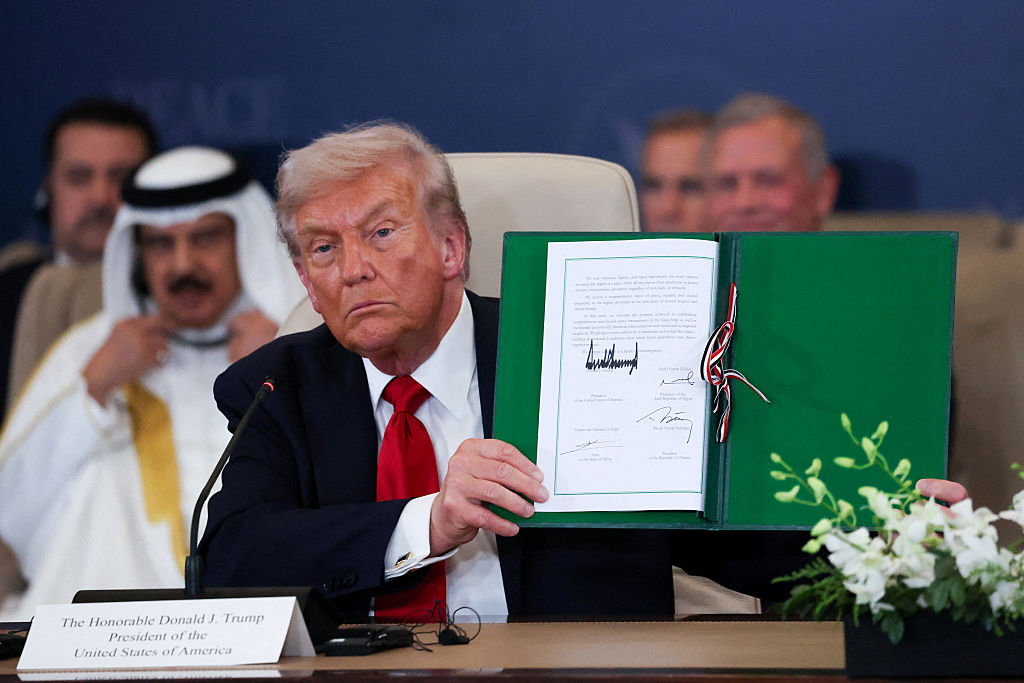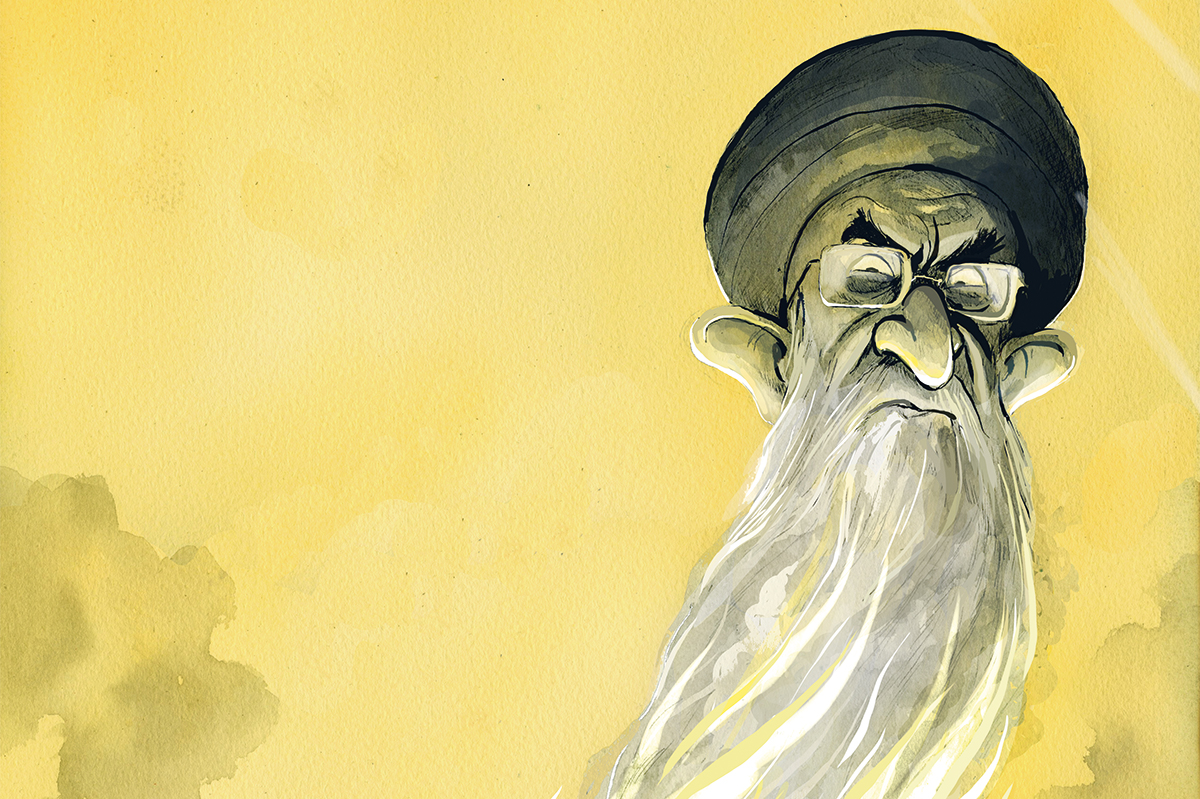There are serious, unanswered questions about the impact of America’s bombing of three Iranian nuclear sites. Three stand out. How much was actually destroyed? Where is the highly-enriched uranium that Iran apparently removed from the Fordow site before the bombs fell? And is America threatened by Iranian sleeper cells, perhaps hidden among the more than 700 Iranians whom the Biden administration released into the American interior after they crossed the border illegally? Nor are they the only threat. We have no idea how many terrorists are among the 2 million “got aways” who were seen on surveillance cameras crossing the border but never apprehended.
Those are serious questions about serious threats, and they deserve thoughtful, bipartisan inquiry. They won’t receive it. Democrats have already begun blustering, almost gleefully, that America’s bombing in Iran wasn’t as successful as Trump claimed. True, Trump is not known for understatement. He claimed all three Iranian sites were “obliterated.” Democrats are furious that their intelligence briefings have been postponed until Thursday and Friday, when the Secretaries of Defense and State will return from the NATO summit in the Netherlands. And they are claiming that the bombing itself was unconstitutional because the President never consulted Congress or received explicit authorization, a claim they never made when Democratic administrations conducted extensive overseas military operations.
Their assault on the administration has been aided by the Defense Intelligence Agency, which just leaked a highly-classified report that the destruction at Fordow is incomplete. Perhaps so. But it is unconscionable that the DIA is leaking these secret findings, given all the intelligence agencies did to undermine the first Trump administration.
It is important to step back here and recognize the stench of these partisan attacks. They reveal a reflexive hatred of Trump, not a serious evaluation of the costs, risks, and uncertainties associated with Trump’s limited intervention in Iran.
You would think Americans – all of them, whatever their political affiliation – would be overjoyed at having carried out a largely successful strike on Iran without dragging our country into a prolonged war. Whatever the eventual “after battle assessment,” Iran has clearly lost most of its nuclear-enrichment capacity, most of its missiles, which threaten US troops, and most of its capacity to threaten our Middle Eastern allies, directly with its military and indirectly with its proxies (which Israel has crushed). You would think. But no, not it in this fetid, partisan atmosphere.
You would think all Americans would praise the extraordinary skill, precision, technological sophistication, and intelligence that characterized the Israeli military operation which preceded the American attack on Fordow, Natanz, and Isfahan. The US operation built on Israel’s success in demolishing the military assets of a country ten times its size. Worthy of praise by all Americans, or so you would think. But no. The hatred of Israel is a North Star on the Far Left, and the Far Left is the heart of the Democratic Party’s base.
You would think that all Americans, looking back on President Trump’s decisions about Iran, would appreciate their prudence, restraint, and positive impact on US deterrence around the world – especially in East Asia. The President refrained from using America’s vast military might prematurely or precipitously. He did everything he could to avoid endangering US troops currently stationed in the Middle East and US citizens at home.
Well before taking military action, Trump gave Iran a clear, unambiguous message: he would not tolerate their effort to build nuclear weapons, not from a theocratic, revolutionary regime that repeatedly threatened to use them against America and Israel. Previous presidents had mouthed the same words but done little to back them up. In several cases, they actively appeased the Islamic regime and fattened its bank account. Tehran used the money to build a vast terror network of proxies around the Middle East, a network the Israelis have now largely destroyed.
Trump was different from his predecessors because his message was believable. It carried the credible threat of military action and severe economic sanctions. Iran should have understood that after Trump’s directive to kill Qasem Soleimani, the head of Iran’s Revolutionary Guard. The fact that Iran didn’t believe Trump would use force this time is a testament to their unlimited goals and catastrophic judgment, grounded in religious zealotry.
Iran made mistake after mistake, beginning with their support for the proxy attacks on Jewish civilians that began on October 7, 2023, starting with Hamas and quickly followed by Hezbollah and the Houthis. These attacks led Israel to make a fundamental strategic decision: that their safety depended on annihilating Iran’s proxy armies and then confronting Iran itself. One mark of Israel’s extraordinary success is the silence of those proxies in Iran’s hour of need.
Iran is isolated on the world scene. Its erstwhile allies, China and Russia, have been silent, recognizing the new reality of the Middle East, in which the Islamic regime’s power is sharply diminished and Israel’s is sharply increased.
The latest phase of that power shift began when Iran ignored Trump’s explicit signal, which gave Tehran two months to negotiate a peaceful end to their nuclear-weapons program. Iran stalled, believing that they could string out the Trump administration and its ally in Jerusalem. Yet another catastrophic miscalculation. On Day 61 the Israeli Defense Forces struck with Trump’s (secret) permission.
This reflexive partisanship on issue after issue comes at a price. The latest is the lack of any objective assessment of the damage done to Iranian capabilities after the two-week war.
After the IDF struck, Trump still publicly sought negotiations with Iran. Again, Iran stalled. They announced that they would refuse to talk with America or its intermediaries until Israel stopped its military campaign. Yet another mistake. Trump responded by saying he wouldn’t ask Israel to stop. Again, Iran stalled.
It was only then, after giving Iran repeated chances to negotiate a peaceful end to its nuclear-weapons ambitions, that Trump authorized the B2’s to hit three Iranian nuclear weapons facilities.
Trump, it turns out, was not the “TACO” president. That demeaning acronym stands for “Trump always chickens out” and grew out of his about-faces during tariff negotiations. On Iran, however, he was the FAFO president. That acronym stands for “F*^k Around and Find Out.” Although there is no Persian translation, the Ayatollah got the message anyway.
If you thought all Americans would understand the security threats Iran posed, you were wrong. If you thought all Americans would appreciate how Trump sought to negotiate before fighting, you were wrong. If you thought a Democratic Party, now built upon Trump hatred, would at least grant that our country is safer for having significantly set back the nuclear ambitions of a terrorist regime, you were wrong. If you thought Trump’s domestic adversaries would recognize that he accomplished his principal goals in Iran without committing ground troops or billions of dollars, you were wrong. A party now animated by a frenzied loathing for Donald Trump cannot assess his policies individually. They loathe every action he takes because they loathe him. It is the tie that binds them.
Why can’t they distinguish Trump’s successes from his failures? Why can’t they recognize the success, perhaps only partial, in Iran? Because they know his success there contrasts so sharply with Biden’s failure. Because they know how deeply their activist base and left-wing donors hate Israel, which coordinated closely with Trump in this successful operation. Because, ultimately, the Democrats have been captured by their extreme left-wing faction. The Party’s center-left, its best hope of winning national elections, have not figured out how to resume leadership and redirect the party without losing their zealous base.
Lacking a leader and a positive message, Democrats turn to the unifying message of “Trump bad.” That quickly translates into “Everything he does is bad.” Trump has exploited that by forcing Democrats onto the wrong side of various “80-20” issues simply by taking positions that most voters endorse.
Democrats trap themselves when they refuse to step back and assess specific policy choices, independent of their general hatred for Trump. Republicans are reflexive in the other direction. Their public stance on almost every issue can be summarized in three words: “Trump is great.” He has captured the party, marginalized the old, center-right Bush faction, and proven he can demolish most Republican antagonists in their primary contests.
This reflexive partisanship on issue after issue comes at a price. The latest is the lack of any objective assessment of the damage done to Iranian capabilities after the two-week war. Such an assessment requires calm judgment and serious discussion, in private, among dissenting views. Good luck finding that in Washington today.


























Leave a Reply